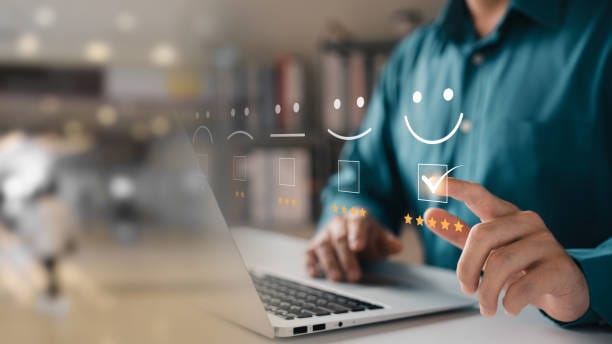Introduction:
In the highly competitive world of hospitality, securing a prominent position on online booking platforms is crucial for attracting guests and maximizing revenue. Among these platforms, Booking.com stands out as a global leader, connecting millions of travellers with accommodations around the world. To ensure your hotel stands out in this vast marketplace, it’s essential to optimize your ranking on Booking.com.
This comprehensive guide will walk you through the key strategies to enhance your hotel’s visibility and boost bookings.
- Create an Impressive Booking.com Profile:
- High-Quality Photos: Upload high-resolution images that showcase your hotel’s unique features and highlight its best amenities. Ensure the photos accurately represent the experience guests can expect.
- Detailed Property Description: Craft a compelling and detailed property description that highlights the unique selling points of your hotel. Use this space to communicate the value and experience guests can enjoy.
- Accurate Amenities Information: List all amenities and facilities available at your hotel. This includes free Wi-Fi, parking, pet policies, and any other features that set your property apart.
- Optimize Room Descriptions and Policies:
- Clear and Concise Room Descriptions: Write concise, engaging, and informative descriptions for each room type. Focus on what makes each room special, and highlight any unique features.
- Flexible Booking Policies: Offer flexible booking options, such as free cancellation or modification. This can attract more bookings, especially from travellers who value flexibility in their plans.
- Leverage Guest Reviews:
- Encourage Positive Reviews: Encourage guests to leave reviews by providing exceptional service. Respond promptly and professionally to both positive and negative reviews to show that you value guest feedback.
- Highlight Positive Feedback: Showcase positive reviews by featuring them on your Booking.com page. This helps build trust with potential guests and enhances your hotel’s reputation.
- Competitive Pricing Strategy:
- Regularly Adjust Prices: Keep an eye on your competitors and adjust your pricing strategy accordingly. Consider offering discounts for early bookings, extended stays, or during off-peak periods.
- Value-Added Packages: Create packages that include additional amenities or services at a slightly discounted rate. This can incentivize guests to choose your hotel over others.
- Utilize Booking.com’s Promotions and Deals:
- Special Offers: Take advantage of Booking.com’s promotional features, such as Genius Deals and Last-Minute Deals. These promotions can increase your hotel’s visibility and attract budget-conscious travellers.
- Genius Program Participation: Join the Genius program to offer exclusive discounts to Booking.com’s most frequent and loyal customers. This can result in increased visibility and bookings.
- Optimize for Search Engines:
- Keyword Optimization: Use relevant keywords in your property description and room details to improve your hotel’s visibility in Booking.com’s search results.
- Regularly Update Information: Keep your property information, pricing, and availability up-to-date to ensure accurate representation on the platform.
- Engage with Booking.com Partner Support:
- Utilize Partner Support Services: Take advantage of Booking.com’s partner support services. Their team can guide on optimizing your listing and address any concerns or issues you may encounter.
- Stay Informed About Updates: Keep abreast of updates and changes to Booking.com’s algorithms and policies. Adapting to these changes promptly can positively impact your hotel’s ranking.
- Implement a Mobile-Friendly Strategy:
- Ensure that your Booking.com profile and website are optimized for mobile users. Many travellers use mobile devices to make last-minute bookings, so a seamless mobile experience can positively impact your ranking.
- Participate in Booking.com’s Visibility Booster:
- Utilize Booking.com’s Visibility Booster to increase your property’s visibility during peak booking times. This feature allows you to bid for a higher position in search results, potentially leading to more bookings.
- Utilize Booking.com Analytics:
- Leverage the analytics provided by Booking.com to understand user behavior, track performance, and identify areas for improvement. Use this data to refine your strategy and focus on what works best for your property.
- Create Attractive Package Deals:
- Develop enticing package deals that include add-ons like breakfast, spa services, or local experiences. Unique and attractive packages can set your hotel apart from competitors and appeal to a broader audience.
- Engage in Social Media Integration:
- Integrate your social media profiles with your Booking.com listing. Engage with travelers on social media platforms to build a community and encourage direct bookings from guests who discover your hotel through social channels.
- Promote Local Attractions:
- Highlight nearby attractions, events, and points of interest in your Booking.com description. Travelers often consider the location and local experiences when choosing accommodation, so showcasing what’s around your hotel can be a strong selling point.
- Ensure Prompt and Accurate Responses:
- Respond promptly to inquiries and reservation requests. A quick and professional response not only satisfies potential guests but also contributes to a positive ranking on Booking.com.
- Implement a Robust Booking Engine on Your Website:
- If you have a hotel website, ensure that your booking engine is user-friendly and provides a seamless booking experience. Direct bookings through your website can lead to better profit margins compared to bookings through third-party platforms.
- Offer Loyalty Programs:
- Implement a loyalty program to encourage repeat bookings. Recognizing and rewarding repeat guests can lead to positive reviews and increased visibility on Booking.com.
- Invest in Online Advertising:
- Consider investing in online advertising to increase your hotel’s visibility. This may include paid search advertising, display ads, or social media advertising to target potential guests.
- Update Special Offers Regularly:
- Regularly update your special offers to keep them fresh and appealing. Booking.com users often filter results based on special offers, so having attractive deals can boost your hotel’s visibility.
- Highlight Sustainable Practices:
- If your hotel follows eco-friendly or sustainable practices, highlight them in your Booking.com profile. Many travelers prioritize sustainability, and this can be a unique selling point for your property.
- Encourage Direct Bookings:
- Include a call-to-action in your Booking.com description, encouraging guests to visit your official website for the best rates. Direct bookings not only save you on commission fees but also contribute to a higher ranking on Booking.com.
Conclusion:
Optimizing your hotel’s ranking on Booking.com is an ongoing process that requires attention to detail, a commitment to providing exceptional service, and a strategic marketing approach. By following the tips outlined in this comprehensive guide, you can enhance your hotel’s visibility, attract more bookings, and ultimately, achieve success in the competitive online travel marketplace. Keep refining your strategy based on performance data and guest feedback to stay ahead in the dynamic world of online hospitality.









